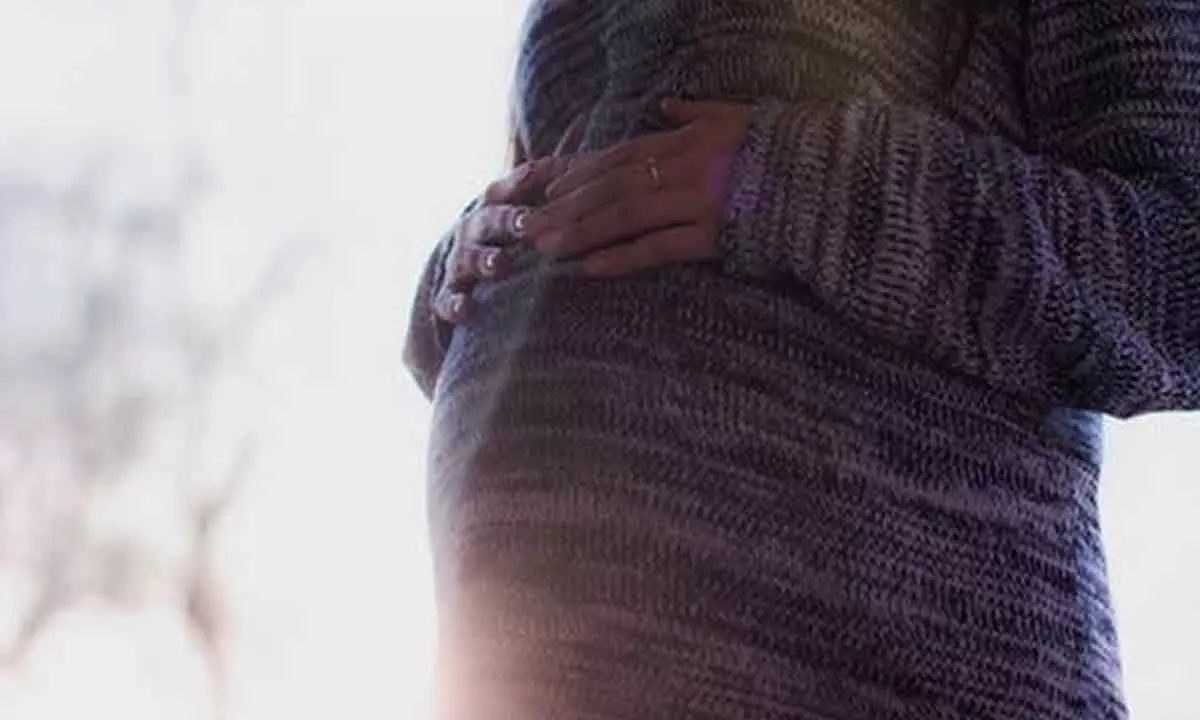COVID-19 linked to increase in US pregnancy-related deaths

COVID-19 drove a dramatic increase in the number of women who died from pregnancy or childbirth complications in the US last year
COVID-19 drove a dramatic increase in the number of women who died from pregnancy or childbirth complications in the US last year, a crisis that has disproportionately claimed Black and Hispanic women as victims, according to a government report released on Wednesday.
The report lays out grim trends across the country for expectant mothers and their newborn babies.
It finds that pregnancy-related deaths have spiked nearly 80 per cent since 2018, with COVID-19 being a factor in a quarter of the 1,178 deaths reported last year. The percentage of preterm and low birthweight babies also went up last year, after holding steady for years. And more pregnant or postpartum women are reporting symptoms of depression.
"We were already in the middle of a crisis with maternal mortality in our country," said Karen Tabb Dina, a maternal health researcher at the University of Illinois at Urbana-Champaign. "This really shows that COVID-19 has exacerbated that crisis to rates that we, as a country, are not able to handle." The nonpartisan US Government Accountability Office, which authored the report, analysed pregnancy-related deaths after Congress mandated that it review maternal health outcomes in the 2020 coronavirus relief bill.
The maternal death rate in the US is higher than many other developed nations and had been on the rise in the years leading up to the pandemic, but COVID-19 has only worsened conditions here for pregnant women.
Women who contract the virus while pregnant face elevated health risks.
Staffing shortages and COVID-19 restrictions created more hurdles for expecting mothers to get in-person health care, and pandemic stress has intensified depression, a common condition during pregnancy.
Mental health issues likely contributed to the increase in pregnancy-related deaths, Tabb Dina said. Many women who experience depression and anxiety during or after their pregnancy struggle to get the care they need.
"Mental health is the greatest complication in pregnancy that we don't understand," she said.
The biggest spike in deaths came during July through December of last year, as the COVID-19 delta variant infected millions, noted Carolyn Yocom, a director at the Government Accountability Office.
"It's really clear from the data that the time in which the delta variant spread seemed to correspond to a huge increase in deaths," Yocom said.
The maternal death rate is particularly stark for Black women, who have long faced worse maternal outcomes than their peers.
Pregnancy-related deaths for every 100,000 births climbed from 44 in 2019 to 68.9 among Black women last year. White women had death rates of 26.1 last year, a jump from 17.9 in 2019.
Death rates among Hispanics had been on the decline, but they swelled again during the pandemic from 12.6 per 100,000 in 2019 to 27.5 last year.
Black and Hispanic people have also died at higher rates from COVID-19, in part because they have less access to medical care and often work essential jobs that exposed them to the virus.
Long before COVID-19 began spreading, the stage was set for Black, low-income and rural women to receive subpar pregnancy care -- putting them at further risk for their pregnancies to go wrong, according to a separate GAO report.
Hospitals have been shedding their obstetric services in rural areas, low-income and majority Black communities, that report said.
More than half of rural counties didn't have a hospital offering pregnancy care as of 2018, the review found.
"The loss of hospital-based obstetric services in rural areas is associated with increases in out-of-hospital births and pre-term births, which may contribute to poor maternal and infant outcomes," the report found.








